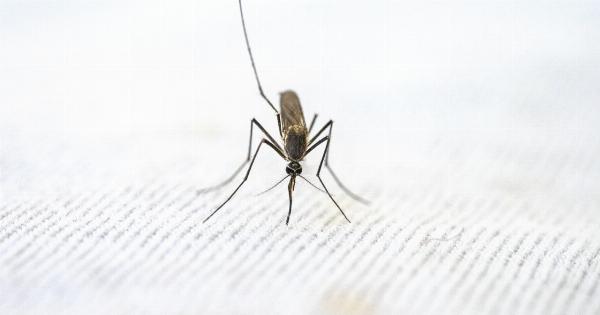Dengue fever is a mosquito-borne viral infection that affects millions of people worldwide, particularly in tropical and subtropical regions. It is a major public health concern due to its potentially severe and sometimes fatal complications.
In recent years, scientists have been exploring innovative ways to control the spread of dengue, and a new approach has emerged – creating genetically modified mosquitoes to combat the disease. This article will explore the development of a new breed of mosquitoes specifically designed to fight dengue.
The Dengue Problem
Dengue fever is caused by four different serotypes of the dengue virus, which is primarily transmitted to humans through the bite of infected Aedes mosquitoes.
Symptoms of dengue can range from mild fever to severe flu-like symptoms, including intense body pain, joint pain, rashes, and in some cases, hemorrhaging. In severe cases, dengue can progress to dengue hemorrhagic fever or dengue shock syndrome, which can be life-threatening.
Traditional Methods of Mosquito Control
Traditionally, mosquito control has relied on insecticides, larvicides, and mosquito nets to prevent the spread of diseases like dengue.
While these methods have had some success in reducing mosquito populations, they are not always effective in eliminating the disease entirely. Additionally, the widespread use of chemical insecticides has raised concerns about environmental impact and the development of insecticide-resistant mosquito populations.
The Concept of Genetically Modified Mosquitoes
Genetically modified mosquitoes (GMMs) offer a promising alternative to traditional methods of dengue control.
The idea behind GMMs is to introduce genetic modifications into the mosquito population that either render the mosquitoes incapable of transmitting the dengue virus or reduce their ability to reproduce effectively. By targeting and modifying specific genes in mosquitoes, scientists aim to disrupt the dengue transmission cycle and reduce the overall population of disease-carrying mosquitoes.
The Development of Dengue-Resistant Mosquitoes
One approach to creating dengue-resistant mosquitoes is through the introduction of a gene called “Wolbachia” into the mosquito population.
Wolbachia is a naturally occurring bacterium that can inhibit the replication of the dengue virus within mosquitoes. Scientists have successfully introduced Wolbachia into Aedes aegypti mosquitoes, the primary dengue vector, in laboratory settings.
These Wolbachia-infected mosquitoes have shown a reduced ability to transmit the dengue virus, as the Wolbachia bacteria compete with the virus for resources within the mosquito’s body.
The Release of Modified Mosquitoes
Field trials are underway in various countries to assess the effectiveness of releasing Wolbachia-infected mosquitoes into the wild.
These trials involve releasing large numbers of modified mosquitoes to mate with wild mosquito populations, with the goal of spreading the Wolbachia bacteria throughout the population. As the infected mosquitoes breed with wild mosquitoes, the proportion of mosquitoes carrying Wolbachia increases, ultimately reducing the transmission of dengue.
Initial results from these trials have been promising, demonstrating a significant reduction in dengue cases in areas with released genetically modified mosquitoes.
Challenges and Concerns
While the development of dengue-resistant mosquitoes shows great potential, there are still several challenges and concerns that need to be addressed. One concern is the potential for unintended consequences.
Modifying the genetics of mosquito populations can have unpredictable effects on the ecosystem, and it is crucial to assess and monitor these impacts carefully. Additionally, public acceptance and understanding of genetically modified mosquitoes are crucial for the success of these programs. Clear communication about the benefits and risks of this approach is essential to gain public support.
Future Directions
The concept of genetically modifying mosquitoes to combat dengue is continually evolving, with ongoing research and development exploring new strategies.
Beyond Wolbachia, scientists are also investigating other genetic modifications that could inhibit the transmission and reproduction of dengue-carrying mosquitoes. These include techniques like gene editing using CRISPR/Cas9 technology, which allows for precise modifications in the mosquito genome. Further studies are needed to assess the effectiveness, safety, and long-term sustainability of these approaches.
Conclusion
The development of genetically modified mosquitoes offers a promising solution to combat dengue and other mosquito-borne diseases.
By introducing specific genetic modifications into mosquito populations, scientists aim to disrupt the transmission cycle and reduce the prevalence of disease-carrying mosquitoes. Early trials using Wolbachia-infected mosquitoes have shown encouraging results, sparking hope for the future of dengue control.
However, careful assessment of environmental impacts and effective communication with the public are crucial for the successful implementation of genetically modified mosquitoes. Continued research and innovation in this field are necessary to create a safer environment and reduce the global burden of dengue.




























